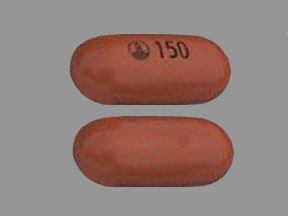Ofev Side Effects
Generic name: nintedanib
Note: This document contains side effect information about nintedanib. Some dosage forms listed on this page may not apply to the brand name Ofev.
Applies to nintedanib: oral capsule.
Serious side effects of Ofev
Along with its needed effects, nintedanib (the active ingredient contained in Ofev) may cause some unwanted effects. Although not all of these side effects may occur, if they do occur they may need medical attention.
Check with your doctor immediately if any of the following side effects occur while taking nintedanib:
More common
- Dark urine
- diarrhea
- loss of appetite
- nausea
- pain or tenderness in the upper stomach
- pale stools
- severe stomach pain
- vomiting
- yellow eyes or skin
Less common
- Black, tarry stools
- blood in the urine
- blurred vision
- bruising or purple areas on the skin
- chest pain or discomfort
- coughing up blood
- decreased alertness
- dizziness
- headache
- irregular heartbeat
- joint pain or swelling
- nervousness
- nosebleeds
- pain in the chest, groin, or legs, especially calves of the legs
- pain or discomfort in the arms, jaw, back, or neck
- pounding in the ears
- severe headaches of sudden onset
- slow or fast heartbeat
- stomach swelling
- sudden loss of coordination
- sudden onset of slurred speech
- sudden vision changes
- sweating
- trouble breathing
Incidence not known
- Bleeding gums
- bloating
- chills
- cloudy urine
- constipation
- difficult or painful urination
- fast heartbeat
- fever
- indigestion
- pains in the stomach, side, or abdomen, possibly radiating to the back
- pinpoint red spots on the skin
- sudden increase or decrease in amount of urine
- swelling of face, feet, or lower legs
- unusual bleeding or bruising
- weight gain
Other side effects of Ofev
Some side effects of nintedanib may occur that usually do not need medical attention. These side effects may go away during treatment as your body adjusts to the medicine. Also, your health care professional may be able to tell you about ways to prevent or reduce some of these side effects.
Check with your health care professional if any of the following side effects continue or are bothersome or if you have any questions about them:
More common
Less common
- Depression
- dry skin and hair
- feeling cold
- hair loss
- hoarseness or husky voice
- muscle cramps and stiffness
- slow heartbeat
- unusual tiredness or weakness
For Healthcare Professionals
Applies to nintedanib: oral capsule.
General
The most common side effects included diarrhea, nausea, abdominal pain, vomiting, liver enzyme elevation, decreased appetite, headache, weight decreased, hypertension, and peripheral neuropathy.[Ref]
Gastrointestinal
Very common (10% or more): Diarrhea (62%), nausea (24%), abdominal pain (15%), vomiting (12%), constipation (12%), abdominal pain, mucositis (including stomatitis)
Uncommon (0.1% to 1%): Pancreatitis, GI perforation[Ref]
Cardiovascular
Common (1% to 10%): Hypertension, venous thromboembolism, myocardial infarction, chest pain
Uncommon (0.1% to 1%): Hypertension[Ref]
Hematologic
Very common (10% or more): Neutropenia (14%), hemoglobinemia (12%), bleeding events (10%)
Common (1% to 10%): Febrile neutropenia
Uncommon (0.1% to 1%): Thrombocytopenia[Ref]
Hepatic
Very common (10% or more): Liver enzyme elevation (14%)
Common (1% to 10%): Hyperbilirubinemia, alanine aminotransferase (ALT) increased, aspartate aminotransferase (AST) increased, gamma glutamyl transferase (GGT) increased
Uncommon (0.1% to 1%): Drug induced liver injury, hyperbilirubinemia, blood alkaline phosphatase (ALKP) increased[Ref]
Dermatologic
Very common (10% or more): Alopecia (18%), rash[Ref]
Endocrine
Common (1% to 10%): Hypothyroidism[Ref]
Metabolic
Very common (10% or more): Decreased appetite (11%), weight loss (10%)
Common (1% to 10%): Dehydration
Frequency not reported: Electrolyte imbalance[Ref]
Nervous system
Very common (10% or more): Peripheral neuropathy (19%)
Common (1% to 10%): Headache[Ref]
Oncologic
Frequency not reported: Lung neoplasm malignant[Ref]
Other
Very common (10% or more): Fatigue (27%), pyrexia (15%)
Frequency not reported: Embryofetal toxicity[Ref]
Respiratory
Very common (10% or more): Nasopharyngitis (56%), bronchitis (11%), dyspnea (17%), cough (17%), idiopathic pulmonary fibrosis (10%)
Common (1% to 10%): Upper respiratory tract infection, pneumonia[Ref]
Immunologic
Common (1% to 10%): Abscesses, sepsis[Ref]
Musculoskeletal
Common (1% to 10%): Back pain, arthralgia[Ref]
Frequently asked questions
- What food should I avoid while taking Ofev?
- How long does it take for Ofev to start working?
- Why does Ofev cause diarrhea?
- Can Ofev and Esbriet be given together?
More about Ofev (nintedanib)
- Check interactions
- Compare alternatives
- Pricing & coupons
- Reviews (16)
- Drug images
- Dosage information
- During pregnancy
- FDA approval history
- Drug class: multikinase inhibitors
- Breastfeeding
- En español
Patient resources
Professional resources
Related treatment guides
References
1. Cerner Multum, Inc. UK Summary of Product Characteristics.
2. Product Information. Ofev (nintedanib). Boehringer Ingelheim. 2014.
Further information
Always consult your healthcare provider to ensure the information displayed on this page applies to your personal circumstances.
Some side effects may not be reported. You may report them to the FDA.

